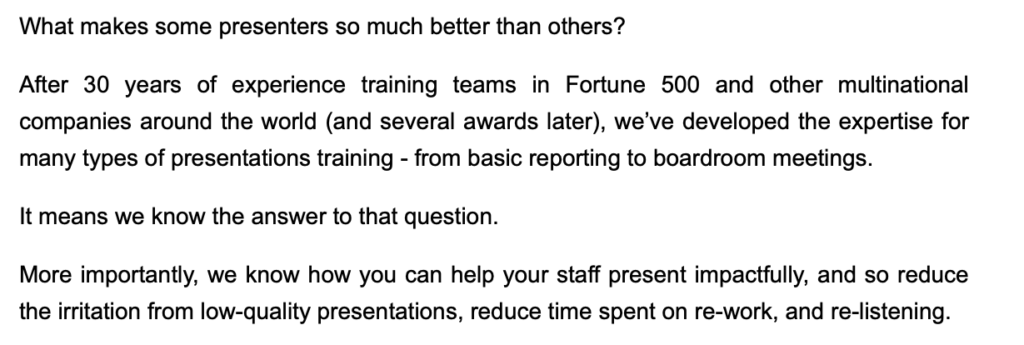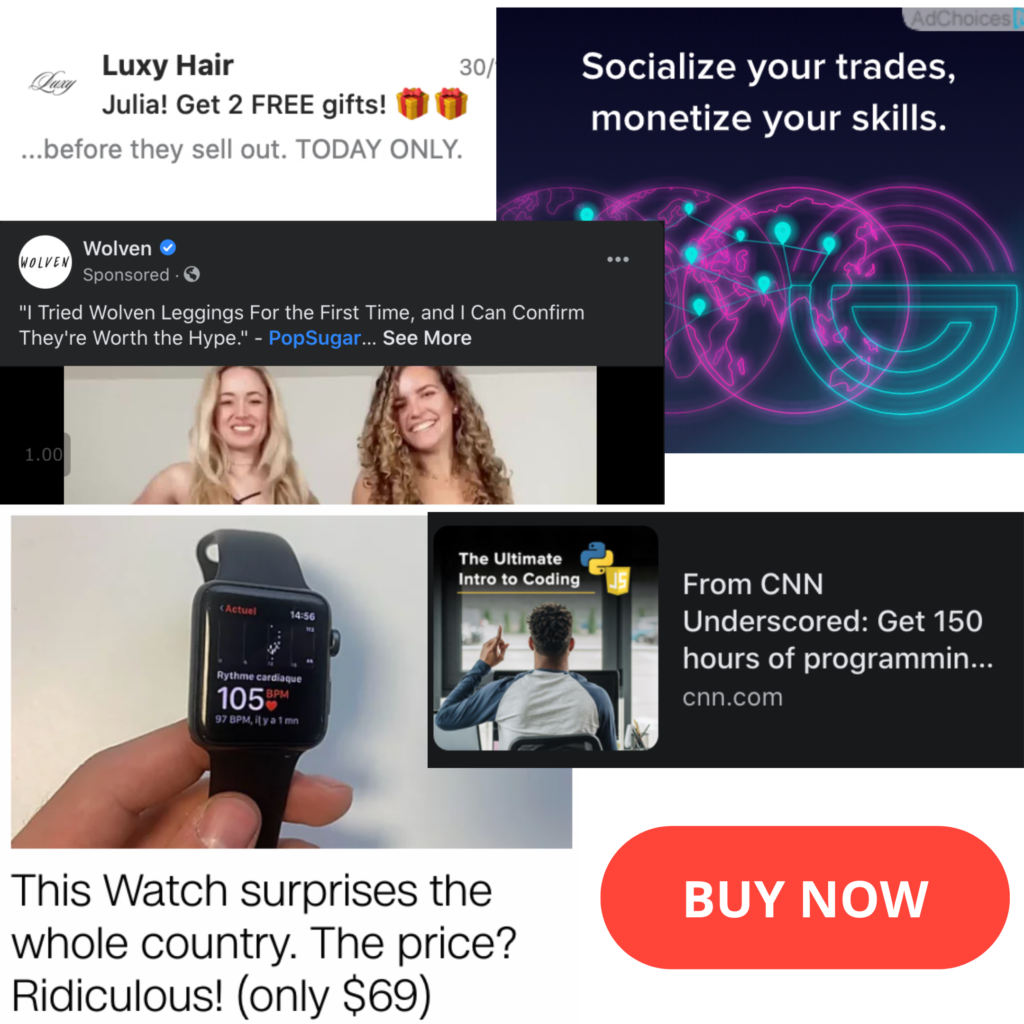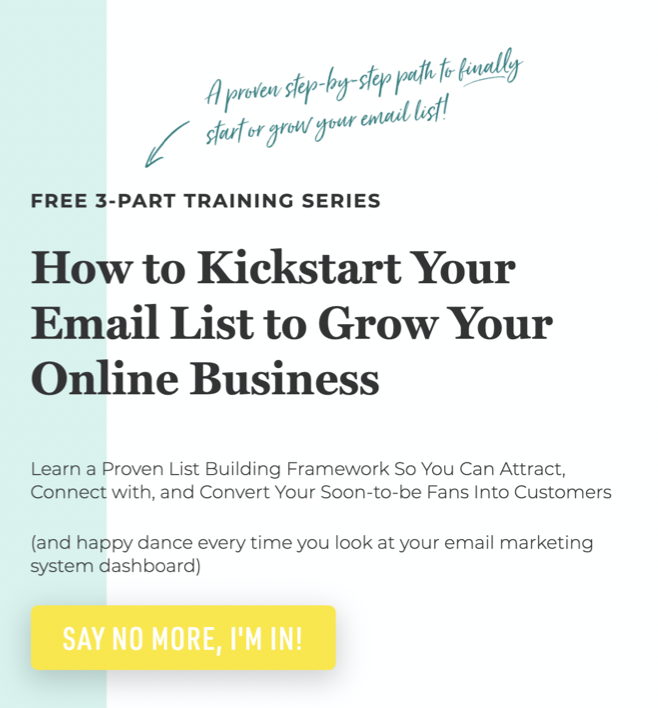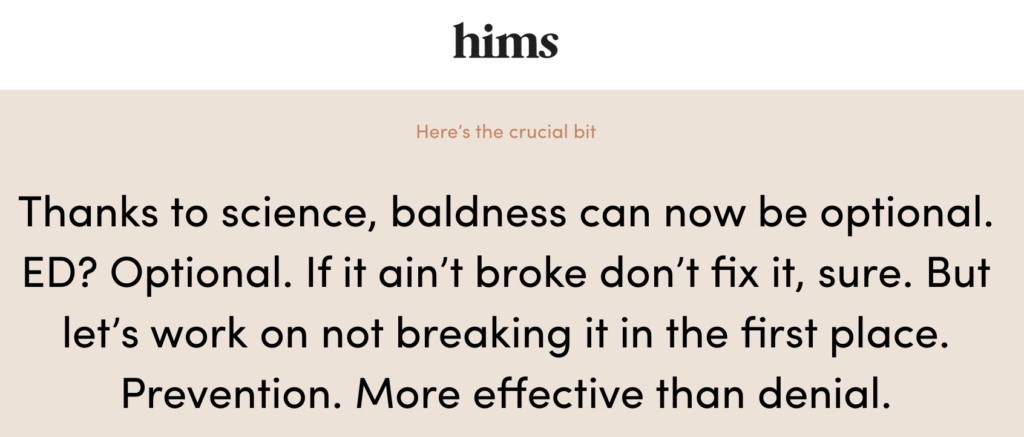It’s launch day.
Three hours in and you can’t help but glance at your phone every five minutes.
Besides the “good luck” message from your mum, only crickets so far.
Now you’re getting nervous. You had pictured this differently.
Instead of rolling in Stripe notifications, you’re racking your brain what’s going wrong.
After talking to dozens of prospects who all seemed thrilled about your product, you were sure that you had found the magical product-market-fit.
So, what’s the missing piece in the puzzle?
It’s the words on the page. The messages. The copy.
They can lift your product to can’t-live-without-it spheres or have your audience close their browser tabs faster than you can say, “but we offer FREE shipping.”
Copywriting is your secret weapon.
You can’t change your product, location, distribution channels, or even target audience that easily. Those things are set.
But, you can change the copy in an instant. This is often enough to give conversions a boost.
That’s why copywriting is called the most profitable skill to have for entrepreneurs and business owners.
Let’s unpack this step by step. I’ll explain…
- what copywriting is
- why you need it
- when and where to use it
- who should be working on it
- and how to get started.
What is copywriting?
“Copywriting is re-arranging words to make things sell better. It is a text form of salesmanship.”
Neville Medhora, Founder of the KopywritingKourse
The point of copywriting isn’t to create artistically beautiful prose. It doesn’t have to be grammatically correct. It doesn’t need to entertain.
What it has to do is sell! It should be making a sales argument, so convincingly that your prospects can’t help but buy.
That’s not all that there’s to it, though.
Neville Medhora has one of the most entertaining ways of explaining copywriting on his KopywritingKourse blog (think stick figure cartoons).

He describes copywriting as being about:
- Getting your audience to want to engage with you instead of spamming them with offers.
- Generously giving something valuable, and not just “greedily asking” for stuff.
- Making your audience want to buy from you. Not out of pressure, but because they enjoy your content and help.
I’d add that copywriting means building a real connection with another person. It’s a human being (not a company) talking to another human being.
Case in point: One of my clients was frustrated by the lack of responses to the emails they sent to their list. Those had generated only 25 leads in the entire year of 2017. The problem was that every email was an impersonal sales pitch, like this one:

When I took over, I focused on providing useful, actionable information for the reader in every single email. That meant including blog posts, links to interesting reads from the industry, and personal insights from the staff. With a bi-weekly email schedule, they received over 500 leads in 2018. The open rate increased from an average of 8% to 21%.
That’s what I like most about the craft. Copywriting can be measured in concrete terms, like page views, click-throughs, opt-ins, conversions, or sales. You start with a baseline, work on the copy, keep everything else equal, and soon you’ll know if your efforts paid off.
There are no opinions involved. It doesn’t matter if the Chief Marketing Officer doesn’t like the headline. What matters are the results.
Why do you need copywriting?
Advertise in some shape or other, because it is evident that if a man has a good article for sale, and nobody knows it, it will bring him no return.
P. T. Barnum, The Art of Getting Money
A few short decades ago, businesses had all the power. They knew stuff that their consumers didn’t and had no means of figuring out. When your parents went to buy a new lawnmower, they had to believe what Mr. Lawnmower Salesman was telling them. With limited choices and information available, products practically sold themselves.
Then the internet happened and oh how the tables have turned. Copywriter veteran Bob Bly argues in the 4th edition of his classic The Copywriter’s Handbook that copywriting is now more important than ever.
We have easy and fast access to a bazillion information online – product reviews, competitor information, case studies… As consumers, we’re better educated but also increasingly skeptical.
With more products and brands to choose from, there are also more advertising messages floating around in the form of Facebook ads, emails, banners, or sales pages. And they are all competing for our attention.

Attention is like oxygen for your business. Without it you’re dead in the water. That means that you have to work extra hard to make your offer stand out among the crowd. How? By writing strong copy with a message that your audience actually cares about.
Like Amy Porterfield promoting free training for entrepreneurs who know about the power of email marketing but struggle to make it work.
Or hims getting straight to what’s on many mens’ minds.


When and where to use copywriting?
The short answer is: everywhere and at any time.
You’re already surrounded by copy and might not even realize it. Your favorite YouTuber has spent hours crafting video titles that get you to click. And the Instagram influencer designed her caption deliberately to invite as many comments as possible.
The moment you start your business, the need for copy begins. And as long as you’re selling something, the need for compelling copy never ends.
The fascinating thing I’ve noticed is that entrepreneurs invest top dollar in setting up marketing funnels without blinking an eye. However, not many realize that only great copy breathes life into all these ads, landing pages, and emails, making the cash register ring on repeat. You need copy at every touchpoint with your audience.
Parris Lampropoulos, one of the best living copywriters, goes one step further. In his conversation with standup comedian turned copywriter Kevin Rogers on Copy Chief, he argues for writing the sales copy first and developing the product second. Why? Because it forces you to figure out what your audience really needs and how you’re going to sell it to them.
Also, if you want to know why Chinese emperors were required to have sex with nine women every night and what this has to do with copywriting – you can’t miss this interview.
Who should be writing the copy?
You can write copy yourself. Many business owners are pretty good at it. After all, copywriting is a skill that you can learn like anything else.
As you know your own business so well, it should be easy to write about it, right? Not really! When you’re so close to what you’re selling, it’s almost impossible to look at it from an outsider’s perspective. You’re too emotionally involved.
I know how that feels. Writing my own website was 23 times harder than creating one for my clients. I was suffering from the curse of knowledge, meaning I already knew too much about my field to explain it clearly to someone new to it.
Being too close to the topic is one situation when it’s worth working with a copywriter. An outside pair of eyes can uncover the messages that your audience really needs to hear, but that you’re likely missing.
The folks over at Copyblogger, coined as the bible of content marketing, identified four other scenarios that more than justify getting external copywriting help:
- You have a pressing need but no time to get good enough at writing copy.
- You simply hate to write. And why spend your precious time suffering?
- You need specific expertise that you don’t have, like fixing your conversions.
- The stakes are too high to mess it up. Nobody wants a failed launch.
The how of copywriting
“Place 100 percent emphasis on how the reader will come out ahead by doing business with you.”
Luther Brock, freelance copywriter
I find learning copywriting lots of fun. It goes way beyond memorizing some formulas and frameworks. Copywriting digs deep into the principles of persuasion and human psychology, analyzing how our brain works and how to influence it.
The best place to start learning copywriting is, in my opinion, Copyhackers. Founded by Joanna Wiebe, the original conversion copywriter, the site is a massive resource of articles and video tutorials, teaching the fundamentals and advanced copywriting techniques.
If you’re eager to dive in, check out this 5-Min Copywriting Crash Course taught by the industry’s leading copywriters – drunk. Here’s some of the wisdom they’ll bestow on you:
- Your headline’s job is to get people to read the next line, not to close the sale.
- Be hyper-specific in your writing to add personality.
- Get to know your audience intimately and show that you care about them.
- Nobody cares about what you do. Your audience only cares about what you can do for them.
- You aren’t selling a product or a service. You’re selling your clients a better version of themselves.
- Keep asking, “so what?” until you arrive at your key message.
But, if adding “copywriting” to your to-do list isn’t an option, then let’s work together. I’ll be happy to take it off your plate.
Final thoughts
I think everybody can benefit from the principles of copywriting. Even if you’re not building a business or work in marketing and sales, you’re always selling something:
You’re selling yourself and your skills to potential employers on LinkedIn.
You’re selling your project idea to your boss (in the hope of qualifying for a raise).
You’re selling your partner the idea of a 14-day all-inclusive cruise in the Caribbean.
Even knowing a few fundamental rules can get you a long way. Implement what you learn and see the results for yourself. If they are positive, then you’ll soon want to leverage this most profitable skill more often.






